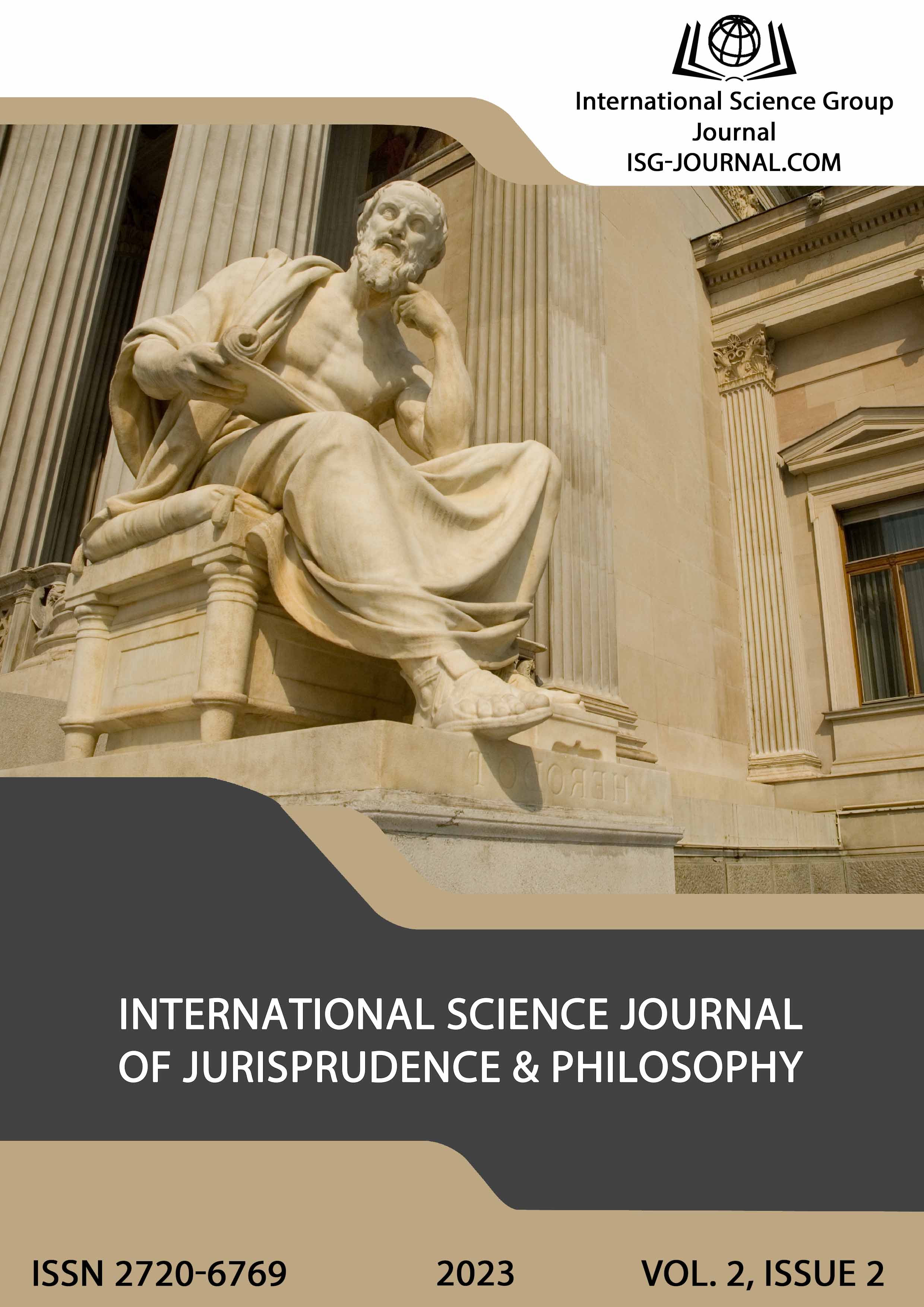Destructive influences in the information and communication space of social media
DOI:
https://doi.org/10.46299/j.isjjp.20230202.03Keywords:
destructive influences, information threats, communication, social media, social network, Internet, Information Society, risk SocietyAbstract
The article identifies specific features of destructive influences in social media, indicates the main information threats and prerequisites for their occurrence. This article raises the debatable question of whether social networks are a full-fledged replacement for real communication for people or whether they themselves pose a threat to information exchange and communication between people. In general, publications discussing the appearance of the future of the Information Society present the full range of moods of expectations: from extreme optimism to complete pessimism. Moreover, as a rule, only certain aspects of the complex process of transition to the information society are highlighted, which does not allow us to understand the overall picture and develop recommendations for solving existing problems. At the same time, the concepts of «prospects», «trends», «challenges», «risks», and «threats» are often mixed up, which makes it even more difficult to understand what type of problems we are dealing with. The riskogenicity of the Information Society, which manifests itself, first of all, in the complete dependence of a person on information technologies and the loss of himself, already attracts the attention of many researchers. The development of effective methods for neutralizing the negative effects of modern information technologies on humans is one of the important tasks of science of the XXI century. As a result of the research, the author comes to the conclusion that it is necessary to study this problem in more depth and develop protective methods.
References
Бек У. Общество риска. На пути к другому модерну. Москва: Паблишинг, 2007. 384 с.
Бехман Г. Современное общество: общество риска, информационное общество, общество знаний. – М.: Логос. 2010. 248 с.
Еляков А.Д. Дефицит и избыток информации в современной социуме. Социологические исследования. 2010. № 12. С. 43-49.
Емелин В. А. Симулякры и технологии виртуализации в информационном обществе. Национальный психологический журнал. 2016. № 3 (23). С. 86-97.
Еремина Е. А, Калинина Ю. В., Заплатина Е. А., Лопатин Л. В. Информационные угрозы коммуникативного характера. Гаудеамус. 2012. №. 20. С. 124-125.
Зыков В. Деанонимизация Интернета – это неизбежный процесс. Известия – новости политики, экономики, спорта, культуры. URL: https://iz.ru/news/686381 (дата звернення: 20.02.2022).
Каждый четвёртый пользователь проводит за смартфоном более 7 часов в день. Популярная механика. URL: https://www.popmech.ru/gadgets/news-391692-kazhdyy-chetvyortyy-polzovatel-provodit-za-smartfonom-bolee-7-chasov-v-den/ (дата звернення: 20.02.2022).
Орел Г. П. Морське право та менеджмент: еволюція та сучасні виклики // Інформація та її розвиток в соціальних мережах/ ХІV міжнародної науково-практичної конференції молодих науковців та студентів м. Одеса, 9-10 квітня 2020 року
Пантин В. И. Вызовы глобальной безопасности в XXI в.: Межэтнические и межцивилизационные конфликты. Вестник Московского университета. Серия 27: Глобалистика и геополитика. 2015. № 1-2. С. 110-119.
Семеновских Т. В. Феномен «клипового мышления» в образовательной вузовской среде. Интернет-журнал «Науковедение». 2014. Вып. 5 (24). С. 1-10. URL: https://naukovedenie.ru/PDF/105PVN514.pdf (дата звернення: 20.02.2022).
Социоантропологические измерения конвергентных технологий. Модели, прогнозы, риски: коллективная монография. Отв. ред. И.А.Асеева, В.Г. Буданов. Курск: ЗАО «Университетская книга», 2017. 243 с.
Соціальні мережі як чинник розвитку громадянського суспільства [Текст]: [монографія] / О. С. Онищенко та ін.; Нац. акад. наук України, Нац. б-ка України ім. В. І. Вернадського. – К.: НБУВ, 2013. – 248.
Старицына О. А. Клиповое мышление как условие успешности информационных войн. Азимут научных исследований: экономика и управление. 2018. Т. 7. № 1 (22). С. 335-339.
Титова В. В. Киберпатология: результаты исследования и пути профилактики. Вестник московского государственного областного университета (электронный журнал). 2017. № 4. URL: https://evestnik-mgou.ru/ru/Articles/Doc/849 (дата звернення: 20.02.2022).
World Economic Forum. Global Risks. Report-2018. http://www.iccwbo.ru/news/2018_WEF_GRR18_Report.pdf (дата звернення: 20.02.2022).
Downloads
Published
How to Cite
Issue
Section
License
Copyright (c) 2023 Ганна Орел

This work is licensed under a Creative Commons Attribution 4.0 International License.

